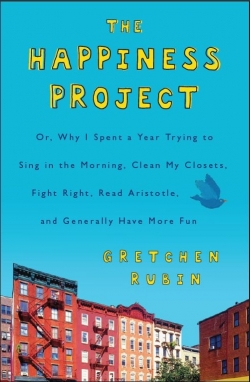Come Visit Me at http://www.christinewhelan.com/blog
This blog as moved!
Come visit me at
http://www.christinewhelan.com/blog
Looking forward to seeing you soon!
Christine
Las Vegas Quickie? No Problem…
 In yet another hilarious-but-informative episode of The Princess, The Priest & The War for the Perfect Wedding, Fr. Eric and I answer a question from a woman whose fiancé has just told her–weeks before the wedding–that he’d previously been married in a Vegas Chapel of Love. What does this mean for their upcoming nuptials… and how many bad gambling puns can I make in four minutes? Check it out here.
In yet another hilarious-but-informative episode of The Princess, The Priest & The War for the Perfect Wedding, Fr. Eric and I answer a question from a woman whose fiancé has just told her–weeks before the wedding–that he’d previously been married in a Vegas Chapel of Love. What does this mean for their upcoming nuptials… and how many bad gambling puns can I make in four minutes? Check it out here.
MacFreedom: A Must-Have for Every Writer
A new writer friend, Siobhan Vivian, just introduced me to the coolest program ever: MacFreedom. It’s a free download (but they suggest a $10 donation) and when you run it, it shuts down your internet access for whatever period of time you set — up to 8 hours. During that time, the program appears to be unresponsive… you can’t undo it without shutting down the whole computer.
For the last few weeks, I’ve been haunting coffee shops where there’s no free wireless (like Starbucks–it’s only a few $$, but it’s the principle of it that keeps me offline) but overhearing girls dishing about relationship sagas, or groups of yoga types fresh off a “really zen session” always had me irritated and distracted.
With MacFreedom, I just got a book review written in the peace and quiet of my office, in two hours–the time I set MacFreedom to keep me offline. I left blanks where I needed to do web searches to fill in information, and, like a drug addict unable to get her next hit, I opened my browser occasionally, “just to see if I could get back online yet” … but after 2 hours, MacFreedom congratulated me on my efforts.
When I write a self-help book on achieving self-control, there’s going to be a whole section on the brilliance of this little piece of software…
Just in case you don’t believe me, The New York Times, The Wall Street Journal and many others have sung its praises as well.
Now get offline and get to work!
2010: The Year of The Happiness Project
2009 was a bit rough for me. Indeed, I heard that from a lot of people.
So Gretchen Rubin’s new book The Happiness Project was a welcome addition to my before-bed reading because, well, it makes me happy and gave me new energy to start 2010 off on an upbeat note. 
Top pointers from the book include:
• Your family is only as happy as it’s least happy member. If that’s you, start a Happiness Project of your own and raise the happy in your household considerably.
• As a kid, and even through our 20s, we had clear opportunities for “gold stars” — getting good grades, graduations, awards, new jobs, marriage, big birthday celebrations etc. But in your 30s, those gold stars seem fewer and farther between. You do your job, you do your errands, you raise your kids, you try to make time for fun with your significant other… but as you put in so much effort, you feel unappreciated. Where’s your gold star? Rubin advises all of us to make a list, do your stuff and then give yourself a gold star. That’s what being a grown-up is about.
• Be Yourself. I know, it’s clichéd, but Rubin’s description of how she decided to “Be Gretchen” inspired me to be clear about who I am. She writes that learning to be herself means “accepting my true likes and dislikes… I have to face the fact that I will never visit a jazz club at midnight, or hang out in artists’ studios, or jet off to Paris for the weekend, or pack up to go fly-fishing on a spring dawn. I won’t be admired for my chic wardrobe or be appointed to a high government office. I love fortune cookies and refuse to try foie gras.” What does it mean to be you?
The Happiness Project isn’t quite a self-help book — it’s more of a memoir of a year of research into self-help — but even without quizzes and action lists, it does the job of any good personal improvement book: It inspires. Check it out and make 2010 your year for a Happiness Project of your own.
Single on New Year’s? You’re Not Alone
A new CatholicMatch.com poll has given us some data to prove what we already know: The holidays are a tough time to be single. Among more than 3,700 online CatholicMatch users polled in the December survey, 40% said that Christmas was the roughest time of the year to be unhitched… with New Year’s Eve a close second with 32% putting it in the number one “ugh” slot.
“I think all holidays are bad without someone special to share them with, but I have my family for most of them,” reported Michelle-407188. “I would have to say the worst is New Years. New Years is for being with close friends! I is way more fun to share it with someone special then alone!”
Women were slightly more likely to vote their solo New Year’s as most depressing – 35% of women compared with 28% of men – and the older you were, the worst it seemed to watch the ball drop without someone to smooch at the end. 
If you’re ringing in the New Year solo this year, try to get with a larger group of friends and head out to a party or local bar. There will be other singles there, too, and who knows who you might meet. Or try online dating: It’s going to be a New Year’s Resolution for many to get online to find a good match.
A few other tips for finding true love in 2010:
1. Get out there. No, seriously. Leave your house. I hear from many of you who tell me you’re looking for a relationship, but you’re too tired to go out when you come home from work, or you spend Friday and Saturday nights with your closest friends at someone’s house. God is very powerful, but it seems unlikely that Mr. or Ms. Perfect will appear with flowers outside your door. Go out and meet some new people!
2. Host a singles pot-luck dinner party. Invite four single friends, and tell each friend to bring a single friend—and something to eat. Make sure you’ve got even numbers of guys and girls, and see what happens!
3. Use props. Dating coach Nancy Slotnick recommends wearing or carrying something unique with you to provide a conversation starter. I have a friend who wears six watches on one arm, and another who has various funny-sloganed pins all over her bag. Even a hat might do the trick…(Check out a Q&A I did with her a few years back.)
4. Take a class. Boys, cooking school classes are a great way to meet girls. Ladies, your local climbing gym, perhaps? Classes where it will only be your same gender don’t count. Mix things up a bit!
5. Ditch your bad attitude. When someone pays you a compliment, do you explain yourself, downplay yourself or otherwise diminish the achievement? Be positive and upbeat—and be free with your compliments to others as well.
6. Throw out your list. So many of us have a checklist of things we’re looking for in a mate. “He has to be these 10 things and then I’ll know he’s the one…” or “As long as she can be all the best of myself, my mother, my sister and my best friend all combined, she’ll be perfect.” I met the man who was all 10 things on my “perfect-match” list…and he was a total dud. Love evolves, emotions can surprise you. And you’re not perfect, so your partner won’t be either!
7. Girls, ditch your “Cinderella Complex.” You are a successful accomplished woman in your own right. You don’t need to be rescued. Your success and accomplishments enable you to broaden your horizons in your search for a husband. The idea that you would only marry a man who has more education and makes more money than you do is antiquated—and might cause you to overlook your soul mate.
8. Guys, leave your ego at the door. Among men and women in their 20s and 30s, the majority of college grads are women—and women also make up the majority of master’s degree recipients as well. Women are climbing in the ranks in every career—including those that were traditionally male-dominated. If you meet a SWANS (Strong Woman Achiever No Spouse don’t be intimidated! Be proud of her success and enjoy all the benefits.
9. Enjoy being single. Ninety percent of Americans marry, so odds are good that you will meet the right match for you and get married. And once you meet the person you’re going to marry, you’ll never have another first kiss, or that rush of adrenaline when you wonder whether the words “I love you” might burst out. You’ll look back on your single years and wonder why you were so worried all the time. Have fun, be confident in your odds of meeting the right person and enjoy all those nights out with friends and new potential dates. Enjoy the ride!

10. Check out Gretchen Rubin’s new book, The Happiness Project. … and create a Happiness Project of your own that involves finding out who you are. Remember, before you can say “I love you,” you must first know how to say the “I.”
But single or married, engaged or having relationship problems, I wish you blessings and new joy for 2010. I hope this new year, this new decade is one of love, laughter and happiness for us all.
Happy New Year!
Top 10 Feelings Worldwide: We Feel Fine
Feel festive, cheerful and blessed around the holidays–but then slide into the doldrums in the first weeks of the New Year? Financially illiterate and then suddenly started blogging about how the ups and downs of the stock market impacted you emotionally? Felt patriotic–or depressed–when Obama was elected?
Talk about following the zeitgeist: Computer programmers Sep Kamvar and Jonathan Harris have spent more than four years collecting some 12 million emotions posted on Internet blogs. Turns out we’re a pretty predicable bunch: Patterns of the calendar, news events and even the weather influence how we say we feel. And as an increasing number of bloggers worldwide share their lives publicly, we’re developing a new relationship with computers, our fellow bloggers and ourselves.
And this holiday season, you can track your emotions in their strikingly beautiful, glossy gift book, We Feel Fine (Scribner, Dec. 1), that uses sophisticated computer science to underpin its findings about modern human emotion. The brainchild of Kamvar, a professor of computational mathematics at Stanford University, and Harris, a systems designer, the data collected comes from a program that scans all blogs every few minutes and extracts the sentences that contain “I feel” or “I am feeling.” Since blogs often have public profiles, the duo was able to determine the gender, age, and location of the people expressing these emotions to boot.
Kamvar said he and Harris hope to tell both macro stories of emotional trends, including informational graphics and maps, and micro stories of individuals complete with a photo and corresponding feeling. “We wanted the reader to be able to seamlessly transition between the high-level statistics of emotion and the individual stories that make up these statistics.”
“Our [original] intent was to show that there was beauty and humanity in the web,” said Kamvar of their 2005 website born as social networking media was coming of age. ” As time went on and we collected large amounts of data, we realized that we were also building an archive of emotional history.”
As We Feel Fine: An Almanac of Human Emotion hit the shelves yesterday, Kamvar, a college classmate, sat down with me for a Q&A.
Check out my interview on the Huffington Post… and tweet it up for one and all!
Holiday Survival Tips for Singles
Some myth-busting advice and good news seems to be particularly enticing around the holidays… and so it’s no surprise that the blogosphere is talking about my book Why Smart Men Marry Smart Women this week:
Check out this terrific article–and the grateful comments from readers below.
And for those of you SWANS® out there, here’s a bit of advice: Prepare yourself for the questions — and learn a few stock answers that will help you deal with those nosy (but loving) family members and friends.
(If you’re not single this holiday season, glance at the below list of questions, too — and make sure you don’t fall into the trap of making your single friends feel awkward during a time of love and celebration.)

The Curious Mom
She asks: “Did you meet anyone interesting last night?”
Strategy: Purposely misinterpret. This is a silly (but common) question.
You say: “Yes! I met this fascinating entrepreneur. She’s starting a women-only business in town…”
The Christmas Interrogator
They ask: “Are you seeing anyone special?”
Strategy: Keep it light. This isn’t the time to be snarky; you just want to get through this and eat your mashed potatoes.
You say: “There are a few possibilities, but don’t worry, nothing too serious. You know I’d let you get a good look at them first to make sure they were good enough for me! Could you please pass the cranberry sauce?”
The Well-Meaning Relative
They ask: “Did you meet anyone interesting last night? I just worry because you’re not so young anymore…”
Strategy: Attack this head-on. There’s been a generational shift.
You say: “Did you know that the average age of marriage for a woman like me is 30? That’s the average, so there are plenty of men/women getting married a lot older than that, too. And I’m more likely to get married because of my career and educational background. It’s really good news…”
For more holiday survival tips, check out my “Single for the Holidays” article here.
Get Off Your High Horse: Self-Help Isn’t For Dummies
In the weeks since the tragedies at the James Ray self-help retreat in Sedona, Arizona, I’ve written pieces for The Washington Post and The Huffington Post documenting the social psychology of the self-improvement industry. It’s criminal how a motivational leader so misled people seeking personal transformation.
But when readers comment on my pieces, many seem to suggest that those who seek self-improvement are stupid, disorganized or at the end of their rope in life. Indeed, this is the conventional wisdom: That people who seek out self-help books have problems. That self-help readers are the kinds of people who watch infomercials at 3 a.m. while eating a supersized bag of Doritos. That self-help readers are unemployed, in their underwear, drooling on themselves. And because they are so pathetic, they make stupid choices like following James Ray.
Thing is, that’s not true. Self-help is about self-control, and the people who are best at personal control tend to be the affluent, educated and proactive types. And the best of self-help—the virtue- and value-based self-help literature going back more than 150 years, not the cult-like mind-control of James Ray—is geared toward just those Type-A go-getters.
As I wrote my doctoral dissertation on the self-help industry, I found that self-help books are practical advice guides for self-control. Personal change is hard—and it takes a lot of work. Sometimes it’s about controlling personal behavior, while other times it’s about controlling your social life, workplace or romantic situation, but “succeeding” at self-help means attaining fulfillment through self-control.
The people who seek self-control are the ones who value it. And researchers find that self-control is a learned skill that increases with each previous success. But here’s the kicker: Already having self-control is a large factor in gaining more of it.
So who tends to buy self-help books and attend self-help seminars? Those with enough self-control and success to value it—and want even more. Here’s why:
Self-Efficacy: There’s a difference between feeling good about yourself (self-esteem) and feeling proud of successful changes you’ve made in your life (self-efficacy). People who believe they can change are more likely to be able to actually do so, and they will also be happier people, researchers find. And unless you think your goals can be achieved, what’s the point in trying? Self-help readers have a high sense of self-efficacy.
Demographics: Middle-aged, educated, affluent people have the self-efficacy, the social support system, and also the resources to change their behavior. Midlife is a time where people are most in control of various spheres of their life – family, career, financial – so they are free to seek control in other aspects of their lives. (For more on this, see O’Donoghue and Rabin’s contribution on “Self-Awareness and Self-Control” in Time and Decision: Economic and Psychological Perspectives on Intertemporal Choice)
But education and affluence are crucial to self-control: Those who are in an extremely powerless status are more likely to be unhappy and feel directed by forces outside their control. Inversely, people who are equipped with a sense of power and self-efficacy are less likely to feel overwhelmed, even in situations of high demand.
Indeed, studies repeatedly find that children from poorer homes do worse on delayed gratification tests than children from middle-class homes, perhaps because of a less predictable environment among the less well-off, where one thinks in the short term because the long term is too up-in-the-air.
Either you got it, or you don’t: And if that class statement isn’t depressing enough, one of the most frustrating elements of self-control research is that people who demonstrate self-control skills are more likely to be self-controlled in the future. Either you have self-control or you don’t: First, self-controlled behavior builds on previous patterns of behavior, and second, those who have self-control are more likely to value it and seek to increase their abilities. Just as an inability to control one’s life can lead to anxiety and depression, so too does a belief in one’s ability to master events foster an optimistic outlook on the future.
This isn’t to say that self-control can’t be learned, but simply that by the time one reaches adulthood, some people have more and some people have less. Self-help readers tend to be self-controlled people—who want more of it. Commitment to self-control requires cognitive and economic resources, and those who already have some of these resources are more likely to continue with a future commitment–be it through a purchase of a self-help book, joining a group or another level of commitment strategy.
So next time you knock self-help readers as silly or beneath you, think again. If you’re so self-controlled and successful, maybe you might consider some quality self-improvement, too.
James Ray: Harnessing the Power of Psychology & Spirituality
What happened in Sedona is not an unfortunate coda to a crazy, fringe event. We have a long history of self-help in America, and to properly comprehend the horror of these deaths, we must first understand the inspiration and guidance that Ray offered. Ray, and many gurus like him, motivate thousands of smart, accomplished adults by borrowing from two very powerful thought traditions — modern psychology and esoteric spirituality — creating a one-two punch that’s nearly impossible to resist. If you had been there, you might be dead, too.
Check out my piece in Sunday’s Washington Post Outlook section–explaining the history and psychology of the Sedona sweat lodge. The horror of this tragedy continues to captivate us, so let’s learn an important lesson: Self-help is NOT harmless.
James Ray Death Lodge: When Will We Learn?
Two people are dead and dozens more were hospitalized Thursday after collapsing from the heat of a sweat lodge at a James Ray spiritual retreat in Sedona, Arizona.
The sweat lodge experience was the culmination of a five-day nearly $10,000 “Spiritual Warrior Event” advertised as a retreat to “accelerate the releasing of your limitations and push yourself past your self-imposed and conditioned borders.”
More than 60 participants entered a makeshift structure where hot stones created intense heat. Rituals in sweat lodges are a common Native American purification practice intended to raise the body temperature to somewhere between 102 to 106 degrees. Given the intense heat, supervision is required — and in most sweat lodges, attendance is limited to 8 to 12 people. Participants should leave when the heat becomes too intense. However, after a week of brainwashing about pushing past “self-imposed” borders, human instinct was overridden by orders from a so-called great leader.
James Ray is one of the hottest new self-help gurus – featured on Oprah, Larry King Live, and The Secret – who has only become more popular during the last year’s economic uncertainty. Ray preaches that it is only our negative attitude and negative energy that holds us back from true wealth.
This week-long event was an advanced retreat, and most of the participants had attended his wealth-building seminars before. Ironically, several of the participants lack health insurance. So now in addition to the nearly $10,000 cost of the event, the ones fortunate enough to survive will be stuck with thousands in medical expenses – that is, of course, until the lawsuits begin.
The obvious question is: Why did these men and women stay in such a hostile environment, even as their lungs burned from the heat and they felt themselves slipping into unconsciousness? Why? Because they were brainwashed into believing that those sensations were merely their culturally prescribed limitations, and that they could push on, prove that they were stronger and stick it out.
Indeed, just hours before the deaths, James Ray posted this to Twitter: ”Still in Spiritual Warrior … for anything new to live something first must die. What needs to die in you so that new life can emerge?”
We often think of self-help as harmless and silly, but the charismatic leadership that these gurus wield is a powerful psychological force. Just because a ceremony is New Age or from a native tradition doesn’t mean that it’s benign. As with all powerful experiences, training and supervision is crucial. And when a leader encourages his followers to override their own bodily signals — encourages them to give up their free will — there are terrible consequences.
-
Recent
- Come Visit Me at http://www.christinewhelan.com/blog
- Las Vegas Quickie? No Problem…
- In the news
- Top Valentine’s Tips
- Can Love Make You Rich?
- Thowing Men Off the Scent
- MacFreedom: A Must-Have for Every Writer
- Are You A Little Bit Married?
- Thank Your Wives, You Lucky Bastards!
- 2010: The Year of The Happiness Project
- Single on New Year’s? You’re Not Alone
- Top 10 Feelings Worldwide: We Feel Fine
-
Links
-
Archives
- March 2010 (3)
- February 2010 (3)
- January 2010 (4)
- December 2009 (2)
- November 2009 (2)
- October 2009 (2)
- September 2009 (6)
- July 2009 (2)
- June 2009 (4)
- May 2009 (7)
- April 2009 (12)
- March 2009 (13)
-
Categories
-
RSS
Entries RSS
Comments RSS

